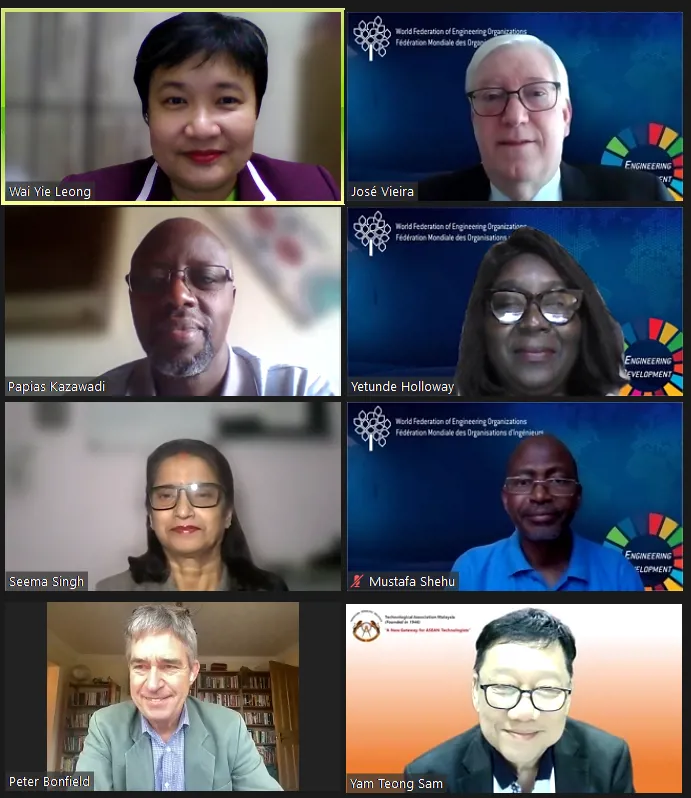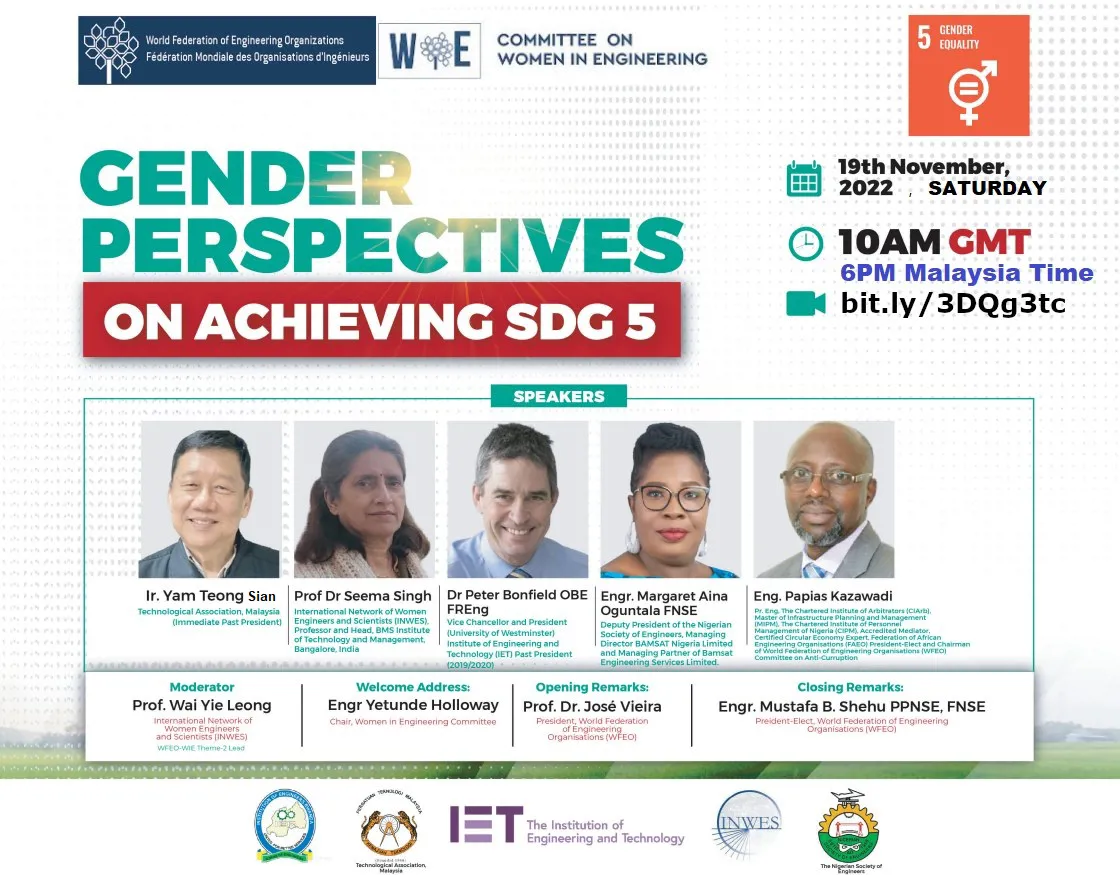Gender perspectives on achieving the UN Sustainable Development Goal 5
Published: Mon 12 Dec 2022
Published: Mon 12 Dec 2022
The Committee of Women in Engineering (WIE) realized the need for men to be partners and allies to women, in order to achieve SDG5 (UN Sustainable Development Goal 5). WIE also recognized that men themselves also suffer from forms of inequality. This webinar on the International Day of the Man was an opportunity for us to listen to men, as they shared their own views on ways that men can support and partner with women to achieve gender equality for all.
The webinar was informative and exciting and have amplified the voices of both men and women in achieving Gender Equality.
Moderator: Prof. Wai Yie Leong, , Theme-2 Lead of the WFEO Women in Engineering Committee

Opening Remarks: Prof. Dr. José Vieira, WFEO President
Speakers:
Closing Remarks: Engr. Mustafa B. Shehu, WFEO President-Elect

Achieving Gender Equality is integral to achieving each of the other 16 goals and it is only by ensuring the rights of women and girls across all the goals that the world will get equity, justice and inclusion and economies that work for all.
Fulfilling this right is the best chance we have in meeting some of the most pressing challenges of our time - from economic crises, and lack of health care, to climate change, violence against women and escalating conflicts all over the globe, elimination of gender-based violence, discrimination and censorship; women’s economic, empowerment through income security and decent work; leadership, equitable representation and gender-responsive systems of governance; and participation in scientific and technological developments, including frontier technologies.